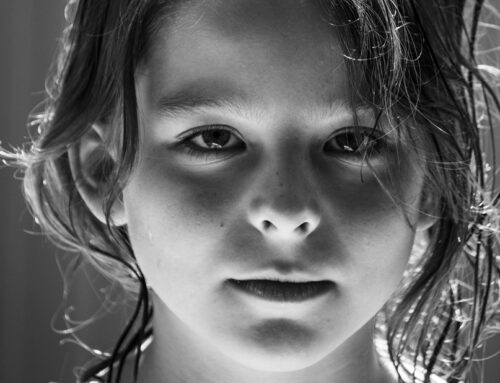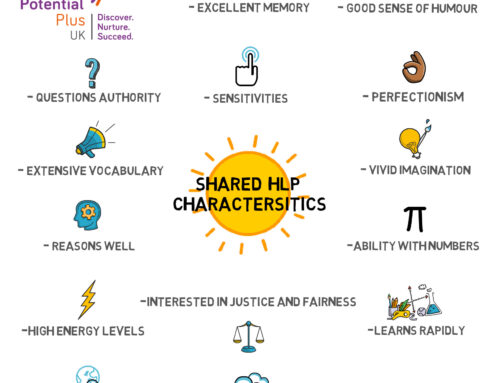Some days, raising a child with high learning potential can feel like it’s drowning you under a huge wave of demands. The quirky needs, complex questions and high energy of a young ‘bright spark’ can lead you to doubt yourself and neglect your wellbeing.
As described in Understand Your Challenges from Potential Plus UK’s High Learning Potential Parenting blog series, many parents feel drained and ask:
“What is wrong with me that I can’t find the energy or patience like other parents?” or “I try so much harder than my friends” […] Bringing with them an unusual intensity, children with high learning potential can exhaust you with their mental and/or physical energy, low need for sleep and high need for being tidied up after!
You are not alone. But remember that alongside your commitment to look after your child and their friendships, it is also super-important for you to look after yourself and the important relationships in your life.
Trusted Back-up
One of the challenges of parenting a high potential learner can be trying to understand how respect for adults is not automatic and needs to be ‘earned’. This can be tough on you as a primary carer – additionally so as friends, family or older relatives can become insulted and reluctant to offer you childcare support.
Find understanding parents and carers in your situation to talk to about this. Maybe this can happen through events, such as Potential Plus UK’s in-person family days or virtual ‘coffee mornings’ and ‘fireside chats’ just for grown-ups! As the Parenting High Learning Potential Children advice sheet explains:
“It is important that all caregivers are adequately supported. Find your own support network; feeling that you are not alone is vital”.
Family and friends may not understand your child’s quirks the way you do, but don’t drift from having reliable back-up. Knowing what to say about their high learning potential to other adults might help you to avoid tensions and misunderstanding; you do need to be able to call upon trusted child care occasionally. It is so important to have the odd quiet night in with your partner – or loud night out with friends!
Physical and Mental Wellbeing
Wellbeing for Carers advises that:
“The important thing is to take your own wellbeing very seriously, so that you have the mental and physical strength to cope calmly and lovingly – not just with your own challenges, but also with those of your high potential young person.”
On a basic level, support your health by carrying out any necessary household safety checks and get to all your medical appointments. Just a reminder, though; don’t use up all your ‘babysitting’ favours for the doctor, dentist or the car’s MOT! You need some exercise, socialising and proper downtime, too, even if sometimes it’s just for an hour while you share out parenting duties and quietly read a book.
Teamwork!
It has been scientifically shown to be beneficial to get outdoors and ‘consciously’ in nature. If you get very little alone time, the blog Wellbeing and Nature – Indoors and Out! could prompt you to combine your own mentally and physically beneficial outdoor adventures with entertaining your children. Sometimes you have to think creatively to find opportunities!
Other ideas might be listening to a kids meditation podcast together, attending a yoga class where baby can sleep alongside or joining a book club or swimming sessions with an older child.
In terms of emotional health, it can be easy to question your efforts if every day seems like an exhausting mystery! Being willing to grow your self-esteem alongside your young high potential learner has the potential to help both of you gain inner peace and mutual respect as you discover how to believe in yourself!
Parental Guilt
Emotional burdens like guilt can be the hardest to put down. Parents describe feeling totally unequipped to cater for the unique demands of a child who is always one step ahead. Some feel ashamed for needing the internet to answer their young child’s questions or inadequate in the face of their teenager’s feisty debates.
There are so many triggers that can make parents feel guilty. “While your child with high learning potential often gives you the impression that they can never squeeze enough out of their day, you sometimes feel that you can never give them enough” … but give yourself a break and let your guilt go!
Empty Battery!
Not only do these bright sparks squeeze every drop out of their day, often they don’t sleep at night either. It is perfectly understandable to feel miserable if you are sleep deprived.
Sleep Deprivation in Parents recognises that:
“However disheartening it can be to feel your friends, family and GP don’t understand the true nature and depth of your sleep issues, in some households, a further layer of stress can be the knock-on reaction of a partner, other children or elderly relatives. As you look out for everyone’s needs, it is crucial you also look out for your own [..and..] occasionally get to sleep through the night in your own bed.”
When you are so tired, it is very easy to feel unable to cope with the tidal wave of daily demands on you.
Perhaps you’ve been trying to teach your young ‘bright spark’ about resilience and growth mindset? Then treat yourself and apply the same thinking! Get a growth mindset of your own! With the help of “Can’t Cope?” – Try Nurturing A Growth Mindset, move from telling yourself you are ‘not yet’ able to be a ‘well being’…to happily agreeing that ‘now’ I do look after my own wellbeing, too!
Resource Roundup Links
(members need to log into the members area and visit the advice sheets index to download advice sheets for free)
- High Learning Potential Parenting: Understand Your Challenges (Blog)
- Events by Potential Plus UK – For example, in-person family weekends or online ‘coffee mornings’ and ‘fireside chats’ for grown-ups!
- PA509 Parenting High Learning Potential Children (Advice Sheet)
- What to Say About Their High Learning Potential – Potential Plus UK (Blog)
- HLP Parenting: Wellbeing for Carers (Blog)
- Wellbeing and Nature – Indoors and Out! – Potential Plus UK (Blog)
- I Believe in Me! – Potential Plus UK (Blog)
- HLP Parenting: Letting Your Guilt Go – Potential Plus UK (Blog)
- HLP Parenting: Sleep Deprivation in Parents – Potential Plus UK (Blog)
- High Learning Potential Parenting: “Can’t Cope?” – Try Nurturing A Growth Mindset – Potential Plus UK (Blog)
About the author: Gillie Ithell is writer, adviser and Advice & Information Officer for Potential Plus UK, holding a B.A. in Modern Languages & Communication and further qualifications in mental health. Having worked internationally as content manager of classic board games and ‘edutainment’ software, Gillie now writes to inspire others like herself; on a daily journey with High Learning Potential.






